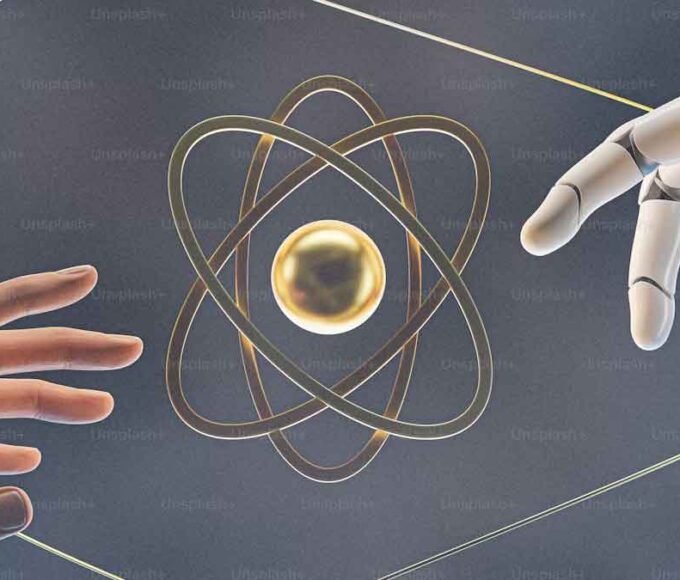- Home
- Billionaires
- Investing Newsletters
- 193CC 1000
- Article Layout 2
- Article Layout 3
- Article Layout 4
- Article Layout 5
- Article Layout 6
- Article Layout 7
- Article Layout 8
- Article Layout 9
- Article Layout 10
- Article Layout 11
- Article Layout 12
- Article Layout 13
- Article Layout 14
- Article Sidebar
- Post Format
- pages
- Archive Layouts
- Post Gallery
- Post Video Background
- Post Review
- Sponsored Post
- Leadership
- Business
- Money
- Small Business
- Innovation
- Shop
Recent Posts
Study: Men Forget Women’s Research in Psychology Citations

In the realm of psychology, a persistent gender disparity has been unveiled through research, revealing a notable difference in the citation rates of men’s and women’s academic contributions. Despite women constituting a significant portion of psychology faculty, their research is cited less frequently than that of their male counterparts. Studies indicate that papers with women as first or last authors receive approximately 30% fewer citations compared to those with men in these roles.
The newly published study, titled “I Forgot That You Existed: Role of Memory Accessibility in the Gender Citation Gap,” delves into potential reasons behind this discrepancy. It suggests that male researchers may overlook women’s contributions, offering a compelling explanation for the observed gender citation gap. The study focused on psychology professors at prestigious research universities, asking them to list experts in their field. The results revealed a clear pattern: female researchers were significantly underrepresented in these lists, with men predominantly citing other men.
Further analysis of the study data unveiled intriguing insights into how male and female professors recall experts in their field. While women listed both male and female experts at similar rates, men were more likely to recall male experts. This disparity suggests that women were indeed present in men’s memory but were not as easily accessible as their male counterparts. This difficulty in recalling women’s contributions may be rooted in societal stereotypes that associate science and academia more broadly with men.
The gender citation gap has far-reaching implications for the careers of female academics. Citations play a crucial role in determining a researcher’s impact and prestige, influencing decisions related to hiring, promotion, and funding. The marginalization of women’s research not only harms individual careers but also limits the diversity of perspectives and insights in the field.
It is important to note that the gender citation gap does not reflect a difference in the quality of research between men and women. Rather, it underscores the presence of biases in academia, where male researchers are more readily cited and recognized than their female counterparts. Encouragingly, the study suggests that these patterns are beginning to change among younger researchers, with evidence of a reverse bias for younger women.
While the study focused on psychology, similar gender disparities exist in other fields, such as neuroscience and political science. These imbalances, often driven by male authors, reflect broader societal biases that undervalue women’s contributions in male-dominated fields.
Addressing the gender citation gap requires a concerted effort to challenge and overcome implicit biases. Recognizing and valuing women’s contributions is not only essential for achieving gender equality in academia but also for advancing scientific knowledge through diverse perspectives.
Recent Posts
Categories
- 193 Countries Consortium Partner1
- 193cc Digital Assets2
- 5G1
- Aerospace & Defense48
- AI37
- Arts3
- Banking & Insurance11
- Big Data3
- Billionaires1,467
- Boats & Planes1
- Business332
- Careers13
- Cars & Bikes79
- CEO Network1
- CFO Network17
- CHRO Network1
- CIO Network1
- Cloud10
- CMO Network18
- Commercial Real Estate7
- Consultant1
- Consumer Tech194
- CxO1
- Cybersecurity73
- Dining1
- Diversity, Equity & Inclusion4
- Education7
- Energy8
- Enterprise Tech29
- Events11
- Fintech1
- Food & Drink2
- Franchises1
- Freelance1
- Future Of Work2
- Games149
- GIG1
- Healthcare79
- Hollywood & Entertainment203
- Houses1
- India’s 1000 Richest1
- Innovation46
- Investing2
- Investing Newsletters4
- Leadership65
- Lifestyle11
- Manufacturing1
- Markets20
- Media327
- Mobile phone1
- Money13
- Personal Finance2
- Policy569
- Real Estate1
- Research6
- Retail1
- Retirement1
- Small Business1
- SportsMoney42
- Style & Beauty1
- Success Income1
- Taxes2
- Travel10
- Uncategorized14
- Vices1
- Watches & Jewelry2
- world's billionaires1,436
- Worlds Richest Self-Made Women2
Related Articles
The minimum ‘standard’ wage for a skilled worker VISA has been updated by the UK as of April 4, 2024. It now states that the salary must be greater than either £38,700 annually or the ‘going rate’ for the appropriate sort of work.
Effective immediately, the UK government has raised the wage requirements significantly for...
By 193cc StaffApril 4, 2024US Faces $34 Trillion Debt, Threatening Job Market
The United States is currently grappling with a monumental national debt, estimated...
By 193cc Agency CouncilFebruary 24, 2024AI’s Role in Career Switching : 3 Ways it Helps
Career pivots are increasingly common in today’s rapidly evolving job market. People...
By 193cc Agency CouncilFebruary 23, 2024Study: Gender Pay Gap Persists, Women Taxed for Remote Work
A recent study by Payscale Inc. reveals that the gender pay gap...
By 193cc Agency CouncilFebruary 22, 2024














Leave a comment